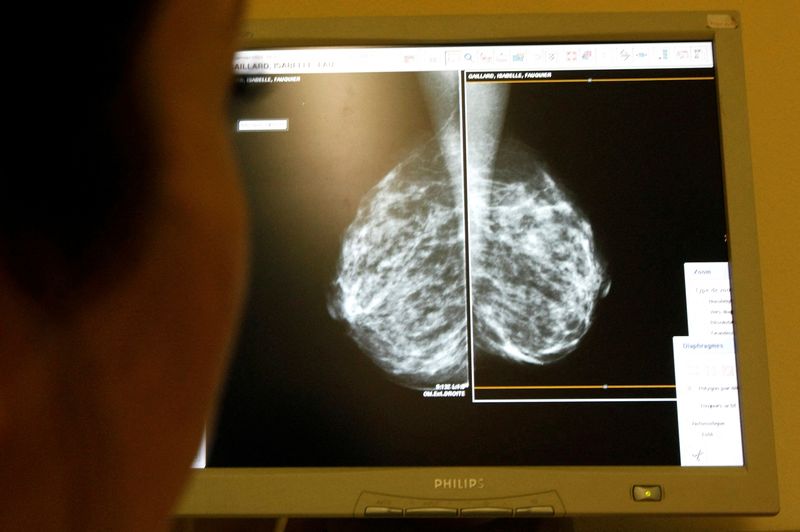By Amina Niasse
NEW YORK (Reuters) -Women at average risk for breast cancer should get screening mammograms every other year starting at age 40, the U.S. Preventive Services Task Force (USPSTF) said on Tuesday, cementing insurance coverage for the procedure for that age group under the law.
The USPSTF's influential recommendation, published in JAMA, reverses its controversial 2009 guidance that breast cancer screening should begin at age 50.
Its updated guidelines bring it in line with other major organizations that say women at average risk of breast cancer should start screening at age 40.
Those organizations include the American Cancer Society, the American College of Obstetricians and Gynecologists, and the National Comprehensive Cancer Network.
A 2016 update from the USPSTF had said women could start screening at age 40 if they and their doctors so desired, but that update led "to widespread confusion for both physicians and patients," said Dr. Evita Singh, Director of Breast Imaging at Karmanos Cancer Institute in Detroit.
U.S. insurers are already required by law to fully cover mammograms for women over age 40 who want them, but the USPSTF's recommendation will now ensure the continuity of that coverage under the Affordable Care Act beyond next year.
By lowering the age to start biennial screening to 40, the USPSTF is acknowledging evidence that more women under the age of 50 are now getting diagnosed with breast cancer.
Black women, in particular, stand to benefit from earlier screening, experts say. Breast cancer mortality is 40% higher among Black women than among white women, and Black women are more likely to get breast cancer at younger ages, the USPSTF report noted.
"There should hopefully be less confusion on the 'right' age to consider screening for average risk people," said Deirdre Saulet, vice president of cancer care at Carrum Health, a digital marketplace for employers to purchase bundled healthcare services.
"I would anticipate that a greater proportion of the primary care doctors in the country would be recommending starting at age 40 for women of average risk," said Dr. Carol Mangione, chair of the USPSTF.
Nearly half of all women have dense breasts, which increases the risk for breast cancer, but the task force says there is not yet enough evidence to recommend for or against additional screening with breast ultrasound or magnetic resonance imaging in these individuals.
The 16-person USPSTF is appointed by the secretary of the U.S. Department of Health and Human Services to independently develop clinical practice guidelines. It is composed of medical professionals serving four-year terms.
